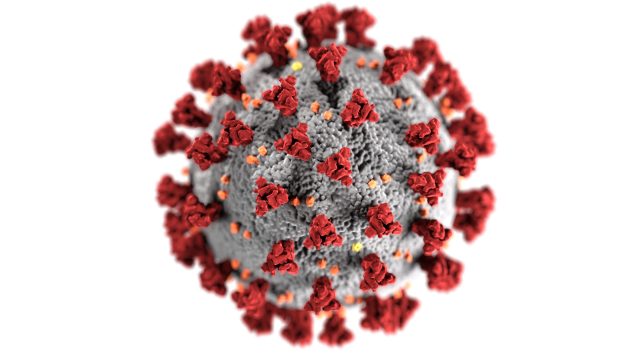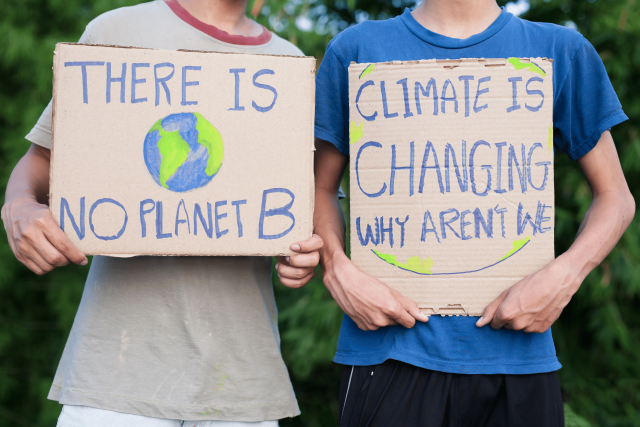When Do You Trust Science? [Science, Politics, & Root Cause Analysis]

Politics and Science
I’ve heard so many politicians talking about science, and I know that most (or at least many) of them have zero scientific background. On the other hand, I’ve had lots of engineering and science training. I have a BS in Electrical Engineering and a Masters in Nuclear Engineering. Besides the normal math and engineering courses, my university education included courses in:
- Physics (including topics beyond relativity)
- Chemistry
- Meteorology
- Human Factors
Therefore, you might say that I have a broad scientific and engineering background.
I’ve also had some interesting conversations with politicians.
I had one-on-one time with a Presidential candidate. In our brief conversation, he explained why being an engineer disqualified me from being President of the United States. Why? Because he said that I would want to make decisions based on logic and facts, but that is NOT how politics works. I guess that’s why Jimmy Carter (an engineer) had such a hard time as President.
What did the candidate tell me that politics is based on? Feelings and emotions. And the feelings and emotions went against him that year. He lost the race.
However, I thought that I should write this article because a discussion about science and politics explains a lot about root cause analysis. I’ll save that explanation until the end of the article.
Read on and try to bear with me without getting too mad if I challenge some of your closely held assumptions with facts. Remember, politics isn’t about logic and facts. Don’t let your emotions get the best of you.
When Science is Wrong
It might surprise you that much of science is based on hypotheses that are “proven” by observations. Unfortunately, some hypotheses that are “proven” are later found to be incorrect. The following are three examples that you may find controversial…
EXAMPLE 1: Universal Law of Gravity. Isaac Newton was a genius. He invented the universal law of gravity. It worked for calculations of many things:
- Apples falling from trees.
- Planets circling the sun.
- Items dropped from great heights.

It was proven by many observations.
But then, one day, it failed.
Physicists were looking at how atomic particles behaved. The particles didn’t follow the universal law of gravity. Therefore, the universal law wasn’t universal. Other forces operated on a sub-atomic level that caused the universal law of gravity to fail to explain what was observed.
Thus, what was thought to be settled science had to be revised. This revision was controversial. You could still use Newton’s laws for some calculations but not for others. In some cases, Newton’s science was WRONG.
EXAMPLE 2: COVID-19.

Many say we need to “follow the science” to defeat COVID-19. But once again, this science is based on models and hypotheses, and the virus is novel (not seen before). Thus, many hypotheses are just guesses that haven’t been proven.
For example, an English model was used to show how many people would die without drastic action. Even without the complete action, the actual fatalities were MUCH LESS than the predicted number. Thus, actions taken were based on predicted mass casualties that never occurred. And each week, the predictions for the next weeks and months into the future were way off. For example, people thought that we would run out of hospital beds and respirators. But we didn’t. Incorrect science (models) caused politicians to take action that was probably too severe. We probably overreacted (based on the actual fatalities) and caused great economic hardship with its own unfortunate results.
I’m not saying that we should try to have more fatalities. What I am saying is that the cost of the actions taken may not make sense. The damage caused by lockdowns may be worse than the results of the COVID virus. That’s why the World Health Organization doesn’t recommend lockdowns for future flare-ups of the virus.
At this point, there is no way to test the hypotheses that we assumed were true in the past. Thus, this pandemic response science will at least partially remain unproven.
What happened? Politicians made decisions without a full understanding of the limitations of science. And people went out and bought all the toilet paper.
Today, we can look back with 20/20 hindsight (or the hindsight we currently think we have) and claim that decisions were wrong or unscientific. However, we only can make these observations after the fact. Why? Because we have the benefit of what we know from our experience.
EXAMPLE 3: Climate Change.

I’ve heard many politicians and a few scientists claim that the theory of climate change is “settled science.” Hopefully, by now you know there is NO SUCH THING as settled science. There is science that we THINK is settled until we learn something new.
Climate Science is a good example of science that has to be revised. Why? Because the predictions from the science aren’t accurate. For example, the predictions made in the early 1990s said we only had 10-20 years until:
- The polar ice caps completely melted.
- Manhattan and Florida were totally and permanently flooded.
- Temperatures skyrocketed uncontrollably.
They said it would be the end of humankind. The results should have happened by 2010 or so.
What happened? Vastly reduced consequences even though we didn’t take much, if any, action.
Why didn’t the 1990s models work? There were many things about the climate that we didn’t understand. (Sounds like COVID, doesn’t it.) Today, we understand some, but not all, of the reasons why the old models failed. We can use this knowledge to make better models. Maybe someday, we will be able to predict the climate of the future accurately.
However, the politicians who back “climate science” can’t admit they (or the science) were wrong (or that the models need to be improved to be more accurate).
Climate scientists have developed new, advanced models that are predicting new dire results. Will these new models be correct? We are five or more years into observing the results, but the outcomes aren’t certain. However, politicians use every fire, hurricane, drought, or snowstorm as proof that we must act now on the unproven hypothesis of human-caused climate change.
That’s the problem with any hypothesis. You have to “prove” the hypothesis by producing reliable, repeatable results. And with anything on our climate’s scale, you can’t run simple experiments to prove your complex model is correct. It takes decades (or centuries) to prove your model. By the time you prove you have an accurate model, the changes will (or won’t) have occurred!
So, should we act on an unproven hypothesis? That’s deciding on feelings and emotions — that’s politics.
Some might say that we should act based on unproven worst-case outcomes. But there are dozens (perhaps hundreds) of potential worst-case scenarios (not just climate change) with outcomes that could endanger all humankind. Outcomes that could wipe out a majority of the people on the earth. We can’t react to them all. So why is the climate change hypothesis (that so far has been proven to be inaccurate) the one we should react to?
When To Believe Science
Science is settled when an experiment can be reliably repeated. Examples:
- If we say an apple will reach the ground at a certain time and speed, it does.
- If we say that wearing a mask will prevent infection, the infection is prevented.
- If we say the polar ice caps will completely melt and Manhattan will flood in 20 years, Manhatten should be flooded 20 years later.
We have to be ready to give up our closely held beliefs IF new evidence disproves our hypothesis. To be a scientist, we can’t hang on to an old hypothesis simply because it is what we once believed.
Unfortunately, many things called settled science are really hypotheses that haven’t been proven (or disproven) or may have been partially proven but may not apply in all cases. People claim their hypothesis is proven, but the hypothesis hasn’t passed the test of time. The results haven’t been consistently proven repeatably.
It’s tough being a scientist. Everything can be going along great, and one negative example disproves your hypothesis. That’s why so many examples of “settled science” from the past are now just forgotten hypotheses that were disproven.
It’s also why when any politician claims to have science on their side; you should be highly skeptical. Remember, politics isn’t based on logic and facts, and most politicians don’t understand the science they are talking about.
Root Cause Analysis and Science
How does this discussion of politics and science relate to root cause analysis?
Many people base their root cause analysis on the process of making a hypothesis and trying to prove it. This is the basis of most cause-and-effect based analysis.
This has a drawback called “Confirmation Bias.” What is Confirmation Bias? Read more about it here:
Or Google it and you will find many (105,000,000) results to read.
TapRooT® Root Cause Analysis uses a different method to find root causes and fix them. It starts with collecting and proving the facts without a pre-set hypothesis. When you thoroughly understand what happened, you then start proving (with the facts) why the incident (and its Causal Factors) happened and what can be done to prevent similar incidents in the future.
Your root cause analysis would be best if you used a system that achieved consistent results and developed corrective actions that stop problems from recurring.
Learn More About Advanced Root Cause Analysis
Would you like to learn more about a revolutionary way to find root causes and stop problems? Use the form below to request a white paper about how TapRooT® Root Cause Analysis works.
Apologies
I hope I didn’t make anyone angry because of this discussion of science, politics, and root cause analysis. After all, I may be wrong. That’s the great thing about science. We are continually challenging hypotheses. We must be ready to admit when we are wrong. Nothing is ever settled.




By the way, if you think I’m wrong, please let me know why. This can help challenge my hypothesis.
Thanks
Mark
Hi Mark,
Well said! Based on my own observations, I couldn’t agree more with your hypothesis as stated!
Scientists say a lot about confirmation bias. The irony is that, without confirmation bias, science couldn’t exist. As Thomas Kuhn pointed out, no theory covers all the data. You pick the data the theory does cover and say the theory is confirmed and ignore the rest. That’s confirmation bias. Also, scientists today seem to think that agreement among scientists proves the science. It doesn’t. As you stated above, it is the ability to make accurate predictions that proves theory.
Thanks for the comment.
My opinion is that the automatic disregarding of evidence that disproves your hypothesis is what defines Confirmation Bias.
That’s a slight disagreement … I think we agree on the remainder.
A small point. A hypothesis is the precursor to a theory. The hypothesis is developed to explain some phenomena. It is then tested through experimentation and observation to determine it’s ability to accurately predict an outcome. If it is repeatable and testable then it becomes a theory.
Thanks
Good to know the proper lingo!
As an engineer, what frustrates me is politicians who claim “I have seen the data.” When, as you pointed out, there is no data. What they have seen is the results of a hypothetical model, which is unproven. They can never produce the “data” they have seen, because there is no data. They then proceed to call anyone who disagrees with them a “science denier.”